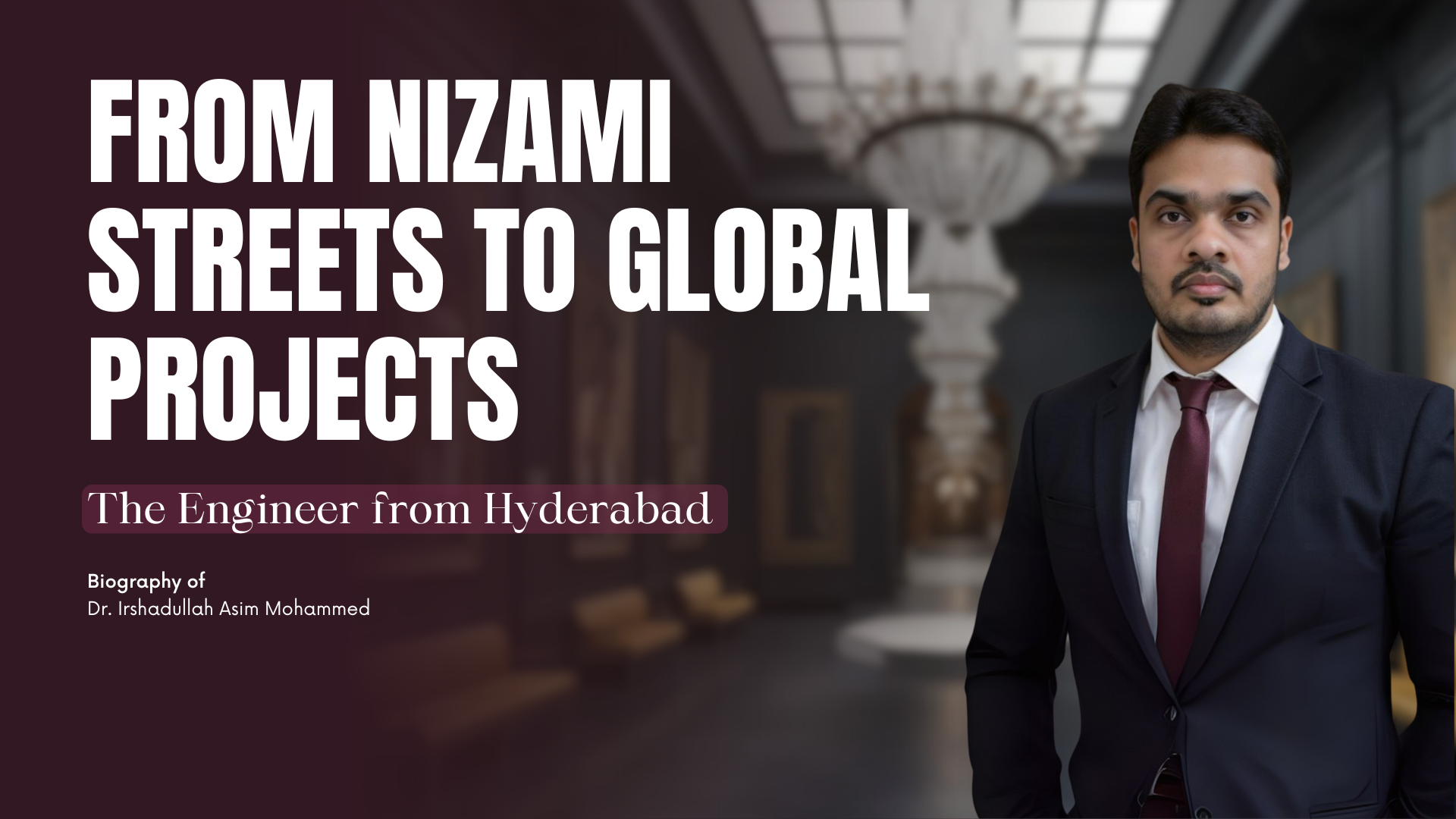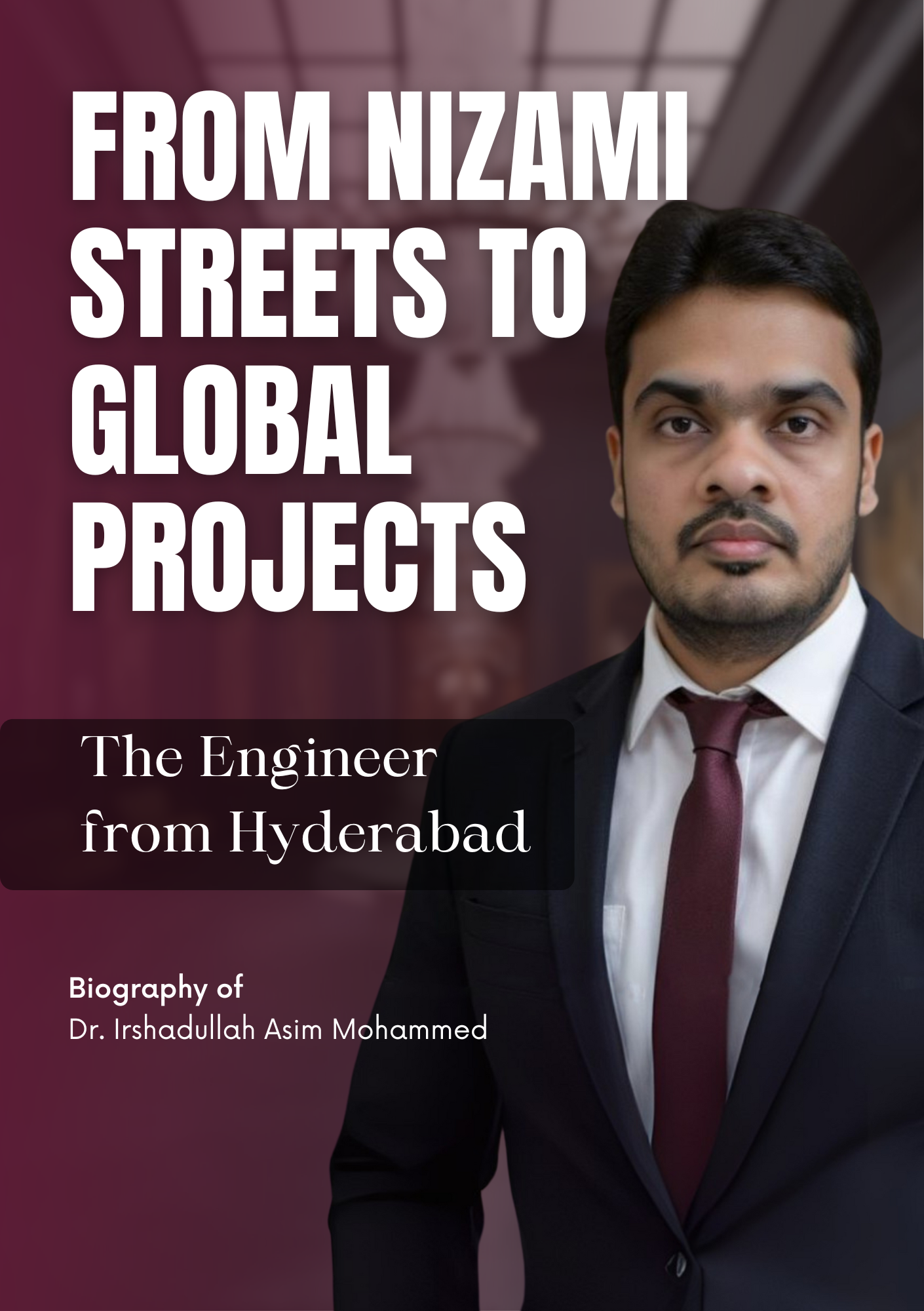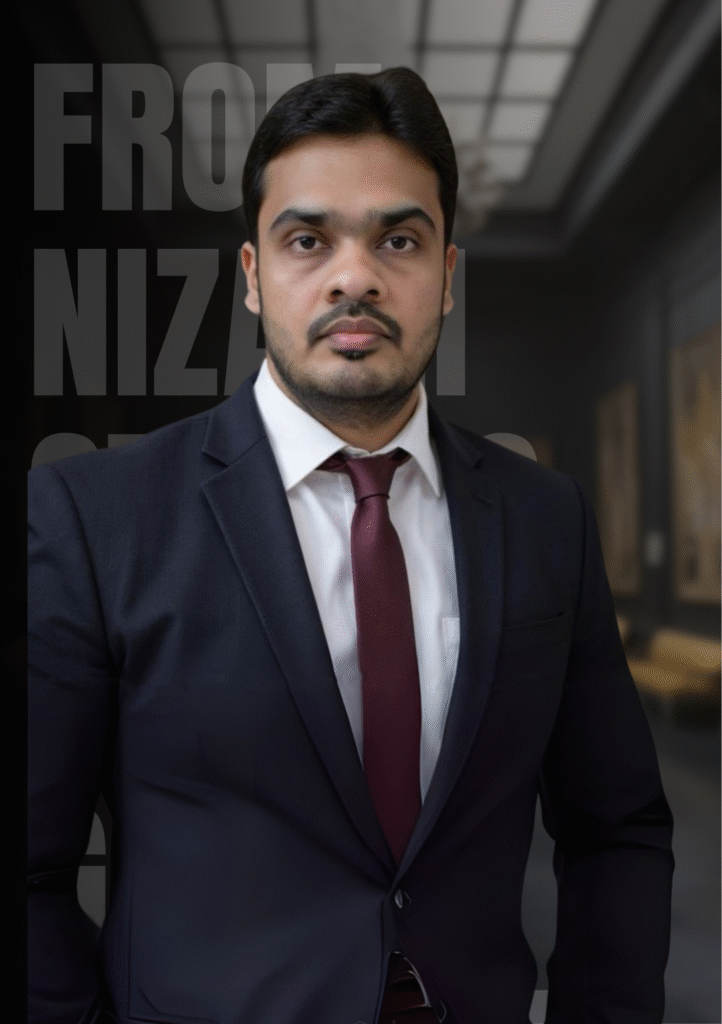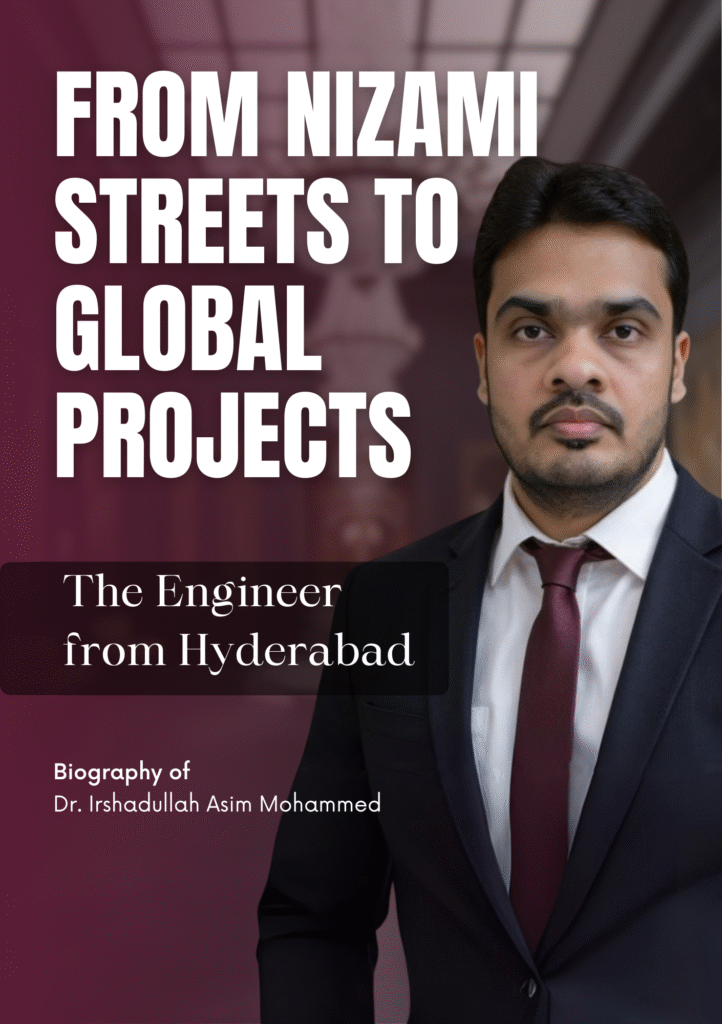

"The true measure of success isn't just in the goals you achieve, but in the dedication you bring to every step of the journey. Consistency, integrity, and passion—these are what shape a meaningful life."
Dedication
Dr. Irshadullah’s father was there until not too long ago, a guiding presence who shaped much of his outlook on life. Growing up, Dr. Irshadullah witnessed his father’s unwavering dedication to providing for the family, instilling in him a deep sense of responsibility and perseverance. “He wasn’t someone who said much, but his actions? They taught me everything I needed to know about commitment and sacrifice,” he recalls.
Even now, Dr. Irshadullah finds himself drawing strength from his father’s example. “Whenever I feel stuck, I think about how he handled challenges—with grace, patience, and unshakable determination.” His father’s passing left an emotional void but also a renewed sense of purpose. “I carry his lessons with me every day. It’s not just about honoring his memory—it’s about living in a way that would make him proud,” Dr. Irshadullah reflects.
Phase 1: Early Life and Education (1980s–2003)
A tree’s strength lies in its roots.

Dr. Irshadullah Asim Mohammed was born in Hyderabad, a city steeped in history, culture, and culinary delight. He grew up in a close-knit family where bonds were strong, and aspirations were nurtured.
His father, a pharmacist, was a trailblazer in the family, being among the first to work abroad. He ensured his family lived comfortably, balancing tradition with modern opportunities. “My dad was an inspiration for all of us,” Dr. Irshadullah shares. “He wasn’t just a provider; he was a mentor who instilled the importance of education and hard work.”
Life in an affluent Hyderabad family meant access to quality education, a spacious home filled with laughter, and countless gatherings with extended family and friends. Yet, the values his father upheld ensured the family remained grounded. The elder brothers—both engineers—set high benchmarks, but they also became role models and pillars of support for young Dr. Irshadullah.
Schooling for him was an exciting journey filled with achievements and a growing curiosity about the world of science. By 2003, he had completed Grade 10, armed with the determination to follow in the footsteps of his brothers and carve out his path in engineering.
Academic Excellence: Irshad Ullah Asim Mohammed has consistently excelled in his academic pursuits, earning accolades and top-tier grades throughout his studies during his Master’s degree in Electrical Engineering and MBA in Management. His coursework and research in supply chain management reflect not only a profound understanding of theoretical principles but also a remarkable ability to apply these concepts to practical, realworld challenges.
Innovative Research Contributions: The research conducted by Mr. Mohammed has addressed critical issues in supply chain management, such as e.g., Supply Chain Optimization, Sustainability, Technology integration, etc.). His findings have not only contributed to the academic community but have also provided actionable solutions.
His work has been published in reputed journals and presented at international conferences, earning him widespread recognition among peers and experts. His patents titled:
1. Design of an AI-Powered Inventory Optimization Interface for Automated Supply Chain Management.
2. AI-Driven Predictive Supply Chain Optimization System using Machine Learning for Demand Forecasting and Inventory Management.
3. Artificial Intelligence-Enhanced System for RealTime Supplier Quality Evaluation and Carbon Emission Management in Supply Chain Networks.
While his research work on Predictive AI for CO₂ Emission Monitoring in Supply Chains had been copyrighted by Canadian Intellectual Property Office, showcasing his commitment to advancing the field.
Phase 2: Engineering Foundations (2003–2010)
Education is not preparation for life; it is life itself
For young engineering aspirants in Hyderabad, life in the 2000s was a mix of ambition, camaraderie, and the occasional chaos that came with deadlines. Dr. Irshadullah’s journey through these years was no different. With Hyderabad being a prominent hub for engineering education, the city buzzed with students exchanging ideas, solving problems, and sometimes just debating which cafe had the best chai. It was the place where dreams of algorithms and circuits began to take shape. Known as an “engineering hub,” Hyderabad churned out engineers faster than the city’s famous Haleem during Ramadan.
Starting his Bachelor’s in Electrical Engineering, Dr. Irshadullah stepped into a world that was challenging yet thrilling. “The first week of college felt like diving into a sea of equations and circuits, but soon enough, you find your pace,” he shares.
Between grappling with Kirchhoff’s laws and marveling at the complexity of transformers, he discovered that engineering wasn’t just a degree—it was a way of thinking
College wasn’t just about academics, though. Hyderabad’s engineering culture had a unique flavor, with its lively campus fests, late-night study sessions, and groups brainstorming ideas over a plate of biryani. “Food was an unsaid constant in our lives. From the canteen’s samosas to the legendary biryani spots, you knew you’d never go hungry while solving even the toughest algorithms,” he chuckles.

Of course, the classroom moments brought their share of stories. “There was this one professor who always had dramatic ways of explaining concepts. He’d relate electrical circuits to traffic jams or cricket strategies—it made the lectures unforgettable,” he recalls.
Dr. Irshadullah’s dedication to his studies, paired with his natural curiosity, made him stand out among his peers. “It wasn’t just about getting good grades—it was about understanding the ‘why’ behind every concept,” he reflects.
Whether it was acing his projects or exploring practical applications during internships, these years helped him develop the foundational skills that would later define his professional career.
Phase 3: Professional Genesis (2010–2015)
The journey of a thousand miles begins with a single step

When Dr. Irshadullah reflects on his early professional years, he often describes them as a mix of excitement, learning, and finding small joys amidst the hustle. Launching his career with Bechtel Corporation, he stepped into the vast and dynamic field of Electrical Power Systems. His first big leap took him to the Middle East—a region known for its grandeur, opportunities, and distinct lifestyle
“Moving to the Middle East was a huge shift,” he shares. “You leave behind the chaos of Indian traffic, only to enter this orderly world of skyscrapers and vast desert landscapes.” For him, the transition was both intimidating and exhilarating. “The thing that hits you first? The tax-free salary,” he says with a laugh. “It’s a huge relief when you realize your paycheck isn’t going to shrink with deductions!”
The work was hands-on, often in challenging field environments. Days were long, but the rhythm of the Middle East’s professional culture allowed for breathing room. “Unlike the constant grind back home, weekends here were a proper break. Fridays were sacred—time for prayers, family, and some great shawarma from the corner joint,” he reminisces.
One of his favorite memories? “During one of the precommissioning projects, we had this multinational team— Egyptians, Filipinos, Pakistanis, and Indians all working together. It was like the United Nations in a power plant! Every day was a cultural exchange over chai breaks. Someone would bring homemade baklava; someone else, biryani. By the end of the project, we weren’t just colleagues—we were friends.”
The Middle East also offered a certain simplicity in daily life. “There was something oddly relaxing about the lifestyle,” he explains. “You’d work hard, but then come home to a quiet neighborhood, knowing your savings were growing without taxes eating into them.”